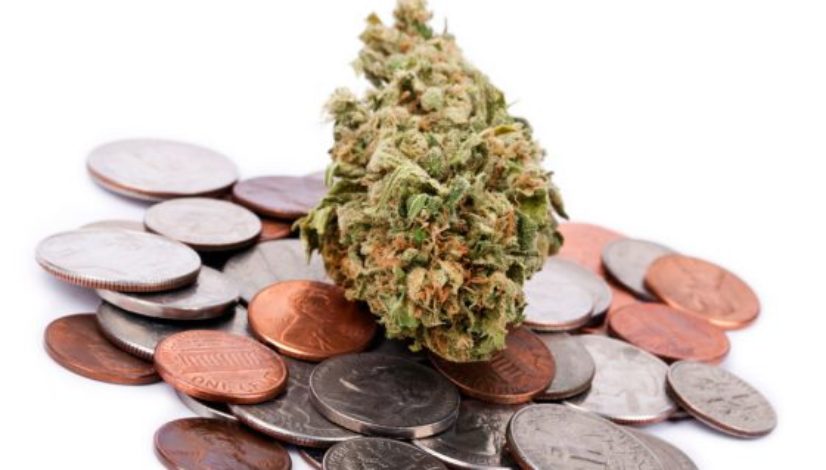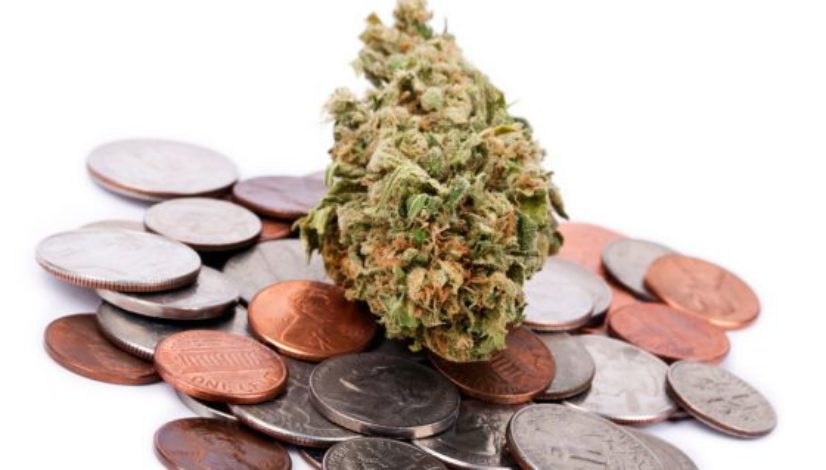Los Angeles might create its own bank for the cannabis industry (among others)

Published: Jul 26, 2017, 3:52 pm • Updated: Jul 26, 2017, 3:55 pm
By Elizabeth Chou, The Cannifornian
Los Angeles city leaders are looking into the possibility of setting up a public bank that would do business with marijuana dispensaries, as well as cater to affordable housing developers.
Council President Herb Wesson proposed the idea in a speech at City Hall, laying out his agenda for the next two years. He said a municipal bank would be able to focus on providing financing to small businesses and developers of affordable housing.
The announcement comes as Oakland is also considering opening its own bank.
“Imagine, if this is possible, to have a bank, where its vision statement is to finance the building of affordable housing,” he told his colleagues on the City Council. “Imagine if we have a bank that is focused on working with small business entrepreneurs to give them loans.”
But while Wesson pointed to the various reasons a municipal bank would be a good idea, it also comes at a key moment for California’s cannabis industry, which will become legal for recreational use in 2018.
Businesses selling marijuana in California, where it has been legal for medicinal use for years, often operate as cash businesses. That is because major banks do not want to open accounts or offer services with them, in fear of violating federal laws that lump cannabis together with drugs like heroin as “Schedule I” narcotics.
The city is also working on a local program to allow marijuana businesses to operate legally and to repeal Proposition D, a 2013 voter-approved measure that banned pot shops while giving immunity to up to 135 that had submitted their applications to the city by a certain date.
“We won’t be like a giant ostrich and stick our heads in the sand, because we recognize that 80 percent of the people in this city voted for us to regulate, tax and police the cannabis industry,” Wesson said Tuesday, referring to Measure M, which was approved by voters in March.
He pointed to examples of the lengths cannabis businesses operators have gone to safe-keep their money, such as the “people that are going to go home tonight and sleep on a mattress that’s worth $2 million” and those who “have a million and a half dollars in cash buried in the back yard.”
Related stories
- Cannabis cash conundrum: Some businesses bury money, others truck it to a federal vault
- Colorado marijuana credit union ready to try again after “historic” ruling, says Fourth Corner CEO
- Federal appeals court gives Colorado marijuana credit union another chance
- Marijuana Policy Project’s bank closing account amid fears of DOJ crackdown
- Ganjapreneurs look to Bitcoin as big banks reject their money
“We have to figure out a way to make this industry work,” he said.
He told reporters afterward that while it might be an unusual idea, “alternative banking” has been floated by multiple groups, including people affiliated with the cannabis industry.
Helping the marijuana industry succeed could prove lucrative for the city of Los Angeles. City leaders estimate that once more marijuana businesses are allowed to operate legally, as much as $50 million in tax revenue from the cannabis industry could flow into city coffers in the first year.
Gregory Meguerian, the owner of a medical marijuana dispensary in Van Nuys, said that while Los Angeles accepts business tax payments in cash, the state’s Board of Equalization won’t take the bills.
“It’s very difficult to try to pay them 10,000-plus dollars a month and you have no bank account,” he said.
Meguerian, who is part of the committee that is advising the city on its new marijuana regulation, said he supports the idea of a cannabis-friendly municipal bank “a hundred percent.” But he also sees challenges ahead for the city, in light of experiences in other states that have already legalized the recreational use of marijuana.
“I know Colorado barely got it right,” he said. “We’ll see. I hope it does happen, and I hope it happens quickly.”
Wesson is expected to officially introduce a motion instructing the Budget and Finance Committee, chaired by Councilman Paul Krekorian, to begin looking into the feasibility of the idea.
A bank could run afoul of federal law if it does not put in extra effort to comply, when working with a business in the marijuana industry. While many well-known banks refuse to open accounts or offer services to these businesses, some local banks and credit unions are willing to work with the industry, according to a draft motion provided by Wesson’s office.
Federal records from March show that 368 banks, credit unions and other institutions work with cannabis businesses on a limited basis, while the Partner Colorado Credit Union has a “safe harbor private banking program” that accepts cannabis business clients, which have become 80 percent of the institution’s customer base, Wesson’s draft motion said.
Public banks are not very common, and the only model the city may have to consult is the Bank of North Dakota, set up in 1919. That bank was created when farmers became upset that many major financial institutions seemed to overly favor railroads and agricultural interests from outside the state, according to Wesson’s office.
The Bank of North Dakota has expanded its services to include low-interest student loans, home loans, financing for public construction and affordable housing, and scholarships, according to the draft motion.
This story was first published on TheCannifornian.com
Topics: banking, California, credit unions, federal banking regulations, Los Angeles




